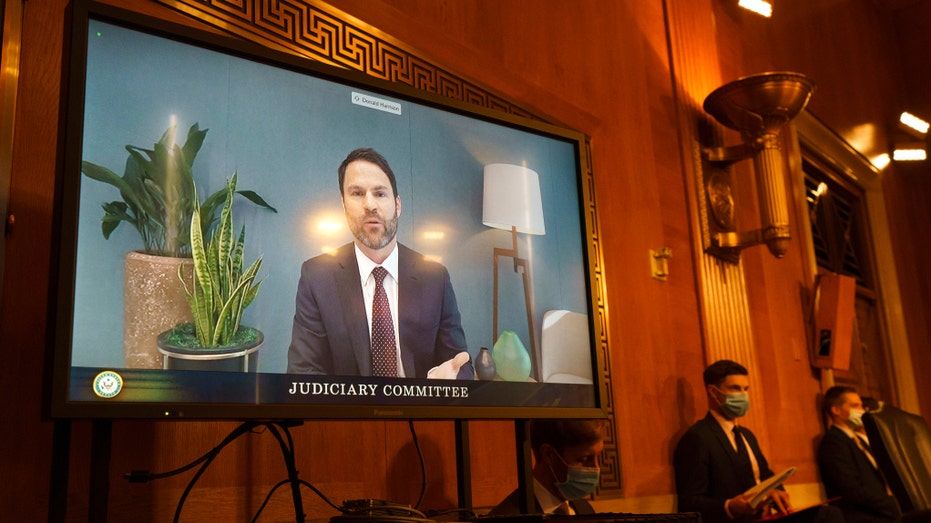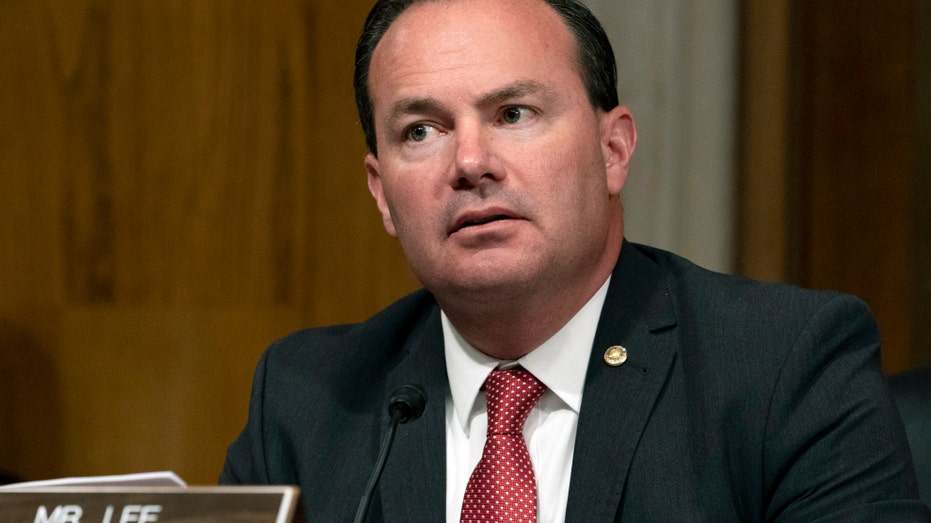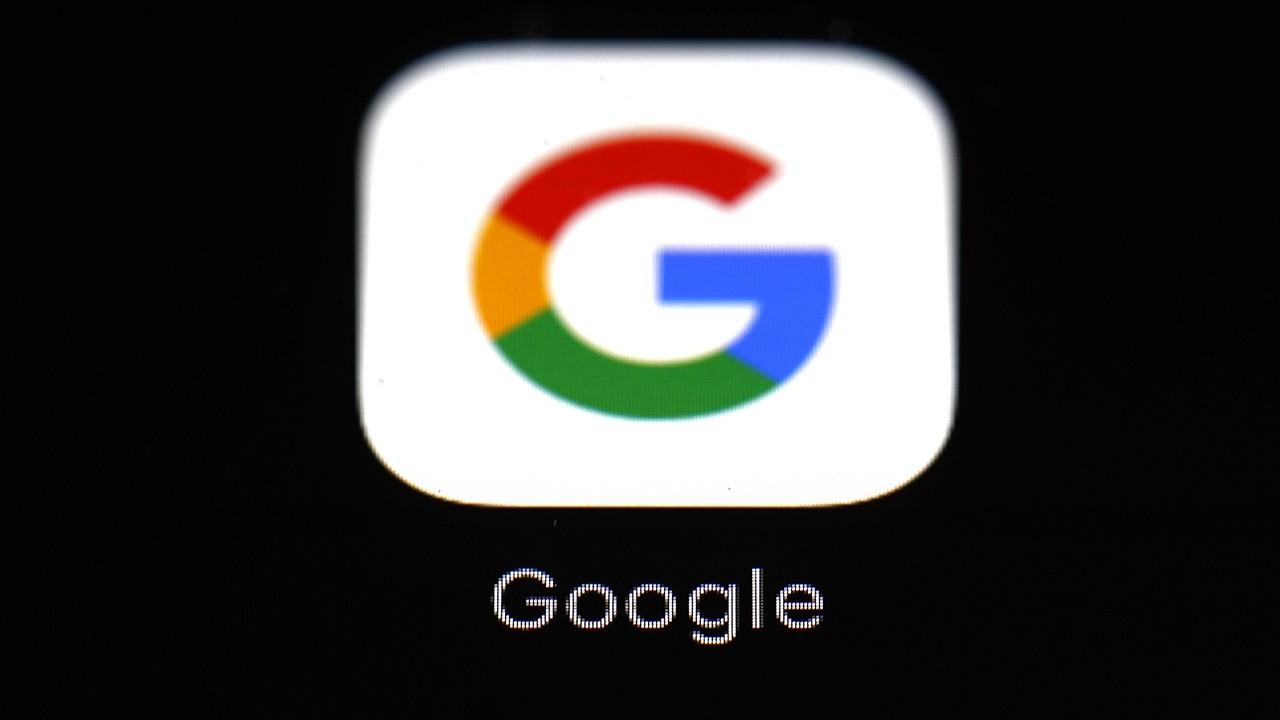Senators skeptical of Google claim it doesn't have ad market monopoly
Google insists it delivers a product that benefits consumers and has a number of large competitors
Republican and Democratic senators alike voiced skepticism Tuesday of Google's reassurances that it is not a monopoly within the digital ad market.
Google on Tuesday answered questions from lawmakers before the Senate Subcommittee on Antitrust, Competition Policy and Consumer Rights about its dominance as an advertising platform and search engine.
"You're using your dominant position in Search and YouTube in order to give yourselves a dominant position in the ad stack, and not just on the demand side ... but also on the supply side because as you drive so much volume onto your demand-side platform, it creates...strong incentives on the supply side," Sen. Josh Hawley, R-Mo., said during the hearing.
Google, a $1 trillion company, has created a platform that both advertisers and publishers — websites that publish ads — have become increasingly reliant on due to the tech giant's massive amount of user traffic and consumer data that help with targeted ads.
Sen. Richard Blumenthal, D-Conn., echoed Hawley's concerns, saying Google "has an immense conflict of interest" as it collects data from both advertisers and publishers. Sen. Ted Cruz, R-Texas, also suggested that Google plays a "dominant role in buying and selling ads online" and pressed Donald Harrison, Google's president of Global Partnerships and Corporate, to name equal ad competitors.
YELP ACCUSES GOOGLE OF DOING 'A LOT OF HARM TO CONSUMERS AND SMALL BUSINESSES'
Hawley cited a study by the U.K. Competition and Markets Authority Commission "found that Google's market share in all of those layers of the ad stack is dominant" in the U.K., taking up between 40 and 90% of different ad markets including search ads, video ads and display ads.
The study also found that major ad tech companies like Google might make as much as 42 cents for every dollar spent on ads.
| Ticker | Security | Last | Change | Change % |
|---|---|---|---|---|
| GOOGL | ALPHABET INC. | 322.86 | -8.39 | -2.53% |
Harrison did not agree with senators' assessments of Google's dominance and mentioned a number of other publishers that provide their own direct advertising, including Amazon, Facebook, Snapchat and TikTok.
"First of all, these are small percentages," Harrison said in reference to the percentages referenced in the U.K. study, arguing that "anyone who sells large amounts of advertising" has similar incentives.

Donald Harrison, president of Global Partnerships and Corporate Development for Google, testifies via video conference during a Judiciary Subcommittee on Antitrust, Competition Policy and Consumer rights hearing. (AP Photo/Jacquelyn Martin)
"From a business perspective," Harison said, encouraging "large buyers to buy a little bit more seems appealing." He insisted multiple times throughout the hearing that Google delivers a product that benefits consumers and has a number of large competitors.
US JUSTICE DEPARTMENT'S GOOGLE LAWSUIT EXPECTED IN WEEKS AHEAD
Smaller advertising companies have accused Google of prioritizing its own products over others, which Google has previously denied before Congress, saying it helps boost smaller businesses and advertisers.
Sen. Mike Lee, R-Utah, brought up Google's policy that requires advertisers who wish to publish ads on YouTube to do so through Google's ad platform, which he called a "restriction" that could "exclude some competing demand-side platforms from the market."
ALPHABET CEO PICHAI SAYS TECHNOLOGY CREATES OPPORTUNITY
Harrison argued that Google was trying to "balance new features" that "weren't offered by platforms and other inventory." He added that there are "lots of examples" of other companies that choose to "self-provision their own inventory," such as Facebook, Snapchat and Pinterest.

Judiciary Subcommittee on Antitrust, Competition Policy and Consumer Rights Chair Sen. Mike Lee. (AP Photo/Jacquelyn Martin)
Google and its defenders, such as tech trade association NetChoice, of which Google parent company Alphabet is a member, argue that the platform is big but not a monopoly because it is popular with consumers; has plenty of competition with other large tech companies such as Amazon, Facebook and Microsoft; and advertising costs have decreased significantly over the last 10 years.
"Google is no monopoly," NetChoice Vice President Carl Szabo wrote in his testimony for the Tuesday hearing. "It's wildly popular with consumers, yes. And true, it's also very popular with investors. But the company faces competition from all corners, including from other tech platforms such as Facebook and Amazon (which are simultaneously and thus illogically also dubbed monopolies)."
GET FOX BUSINESS ON THE GO BY CLICKING HERE
He added that when looking at the "relevant" market that includes TV and newspaper ads, "Google’s market share is a modest 29%. In other words, it’s nowhere close to being a monopoly, which the Supreme Court informally defines as having at least 75 % market share."
Lawmakers on both sides of the aisle have long argued that Google is a dominant power in the ad market and are working to protect the interests of smaller advertisers, publishers and search engines.
The Justice Department, which has been investigating Google's alleged antitrust practices related to advertising, is expected to file a complaint against the tech giant as soon as next month, Reuters reported Sept. 3, citing two sources familiar with the probe.
Nearly all state attorneys general have also opened investigations into the company and have met with the Justice Department to discuss findings.




















